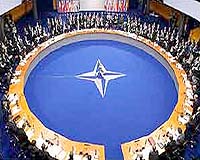| . |  |
. |
Beirut, Lebanon (UPI) Jun 25, 2009 The roundup of around 40 alleged Israeli agents in Lebanon in recent weeks has in all probability been a serious blow for Israeli intelligence at a time when its longtime adversary, Hezbollah, is bracing for another onslaught by the Jewish state. Both sides are nervous -- Israel because valuable eyes and ears inside Lebanon have been lost, Hezbollah because the existence of these cells, some of them set up 25 years ago, was an immense security failure on its part and will mean it will have to do a lot of housecleaning and reorganizing. All this means is that two of the Middle East's most ferocious adversaries, whose intelligence war over the years has been one of the most heated in the region, have both been badly damaged and want to hit back. The turmoil in Iran and the emergence of a hard-line, right-wing government in Israel under hawkish Prime Minister Binyamin Netanyahu fuel this unease and sense of vulnerability on both sides. And in the volatile Middle East, those are usually portents of trouble. With one cell after another being rolled up, the Israelis will no doubt have told whatever other intelligence assets they may have in Lebanon to lie low. And it seems clear, given the rank of some of the Lebanese arrested in the crackdown, that the Israelis had penetrated Lebanese society and its military widely and deeply. The alleged agents included a former general in Lebanon's premier security service, two army colonels and a former mayor. Lebanese authorities say most of those arrested, including those just listed, have all confessed that they had been spying in Lebanon for years. Some said they were recruited by Israel's various intelligence services -- Mossad, which operates outside Israel; the Shin Bet internal security service, which operated in Lebanon and the Palestinian territories; and Aman, military intelligence -- as far back as 1982 when Israel invaded Lebanon. In Lebanon, given Hezbollah's nationwide military structure and the danger it poses for the Jewish state, the Israelis will have to rebuild the networks smashed by Lebanese intelligence and Hezbollah's security branch to regain the intelligence flow that is vital to military operations. This means that to an extent that can only be guessed at, the Israelis are more vulnerable regarding Hezbollah than they have been for many years. When Hezbollah abducted Israeli soldiers on the border on July 12, 2006, Israel responded with wave after wave of airstrikes in what became a 34-day war. The Israelis were able to destroy bunkers containing most of Hezbollah's long-range rockets capable of striking deep into Israel, almost to Tel Aviv, in under an hour. Their intelligence was that good, and some of that must have come from agents they had on the ground. Those assets may no longer be available, and the Israeli air force may not be able to strike with such devastating accuracy next time around. Hezbollah, too, is jumpy, and with some reason. From what information is available about the alleged spies' activities, they were focused primarily on tracking Hezbollah leaders and key operatives, identifying command centers and safe houses. Several senior Hezbollah officials who were assassinated were probably targeted by intelligence provided by the Israeli agents. At least one of these agents had secured a commercial contract with Hezbollah's administrative branch to maintain its vehicles and had planted tracking devices in them that went undetected for years. It does not take a great stretch of the imagination to surmise how many secret facilities and key Hezbollah operatives were uncovered in what must stand as one of the most successful espionage operations mounted in many years. It seems that the assassination of several senior Hezbollah figures likely resulted from the activities of the Israeli spy rings. Among those killed was the Shiite movement's fabled and shadowy operational chief, Imad Mughniyeh, the most wanted fugitive in the world until Osama bin Laden struck on Sept. 11, 2001. Mughniyeh, indicted in the United States for the June 1985 hijack of a TWA jetliner in which a U.S. Navy diver was murdered, was assassinated in one of the most secure districts of Damascus, the Syrian capital, after a meeting with Syrian intelligence chiefs. A bomb placed in the headrest of his SUV was detonated by remote control when he got into the vehicle. It was one of the most spectacular assassinations in the Middle East for years. It hit Hezbollah hard, and it has carried out no operation of any significance against Israel since then.
Share This Article With Planet Earth
Related Links
 NATO endorses drawdown of Kosovo force
NATO endorses drawdown of Kosovo forceBrussels (AFP) June 11, 2009 NATO defence ministers on Thursday endorsed a plan for thousands of peacekeepers to leave Kosovo if security conditions can be assured, a decade after the air war against Serbia. The plan, NATO diplomats say, would see the KFOR mission cut to 10,000 troops from the current 13,800 by January, and fall to some 2,500 personnel over two years if a series of benchmarks are met. "Ministers ... read more |
|
| The content herein, unless otherwise known to be public domain, are Copyright 1995-2009 - SpaceDaily. AFP and UPI Wire Stories are copyright Agence France-Presse and United Press International. ESA Portal Reports are copyright European Space Agency. All NASA sourced material is public domain. Additional copyrights may apply in whole or part to other bona fide parties. Advertising does not imply endorsement,agreement or approval of any opinions, statements or information provided by SpaceDaily on any Web page published or hosted by SpaceDaily. Privacy Statement |